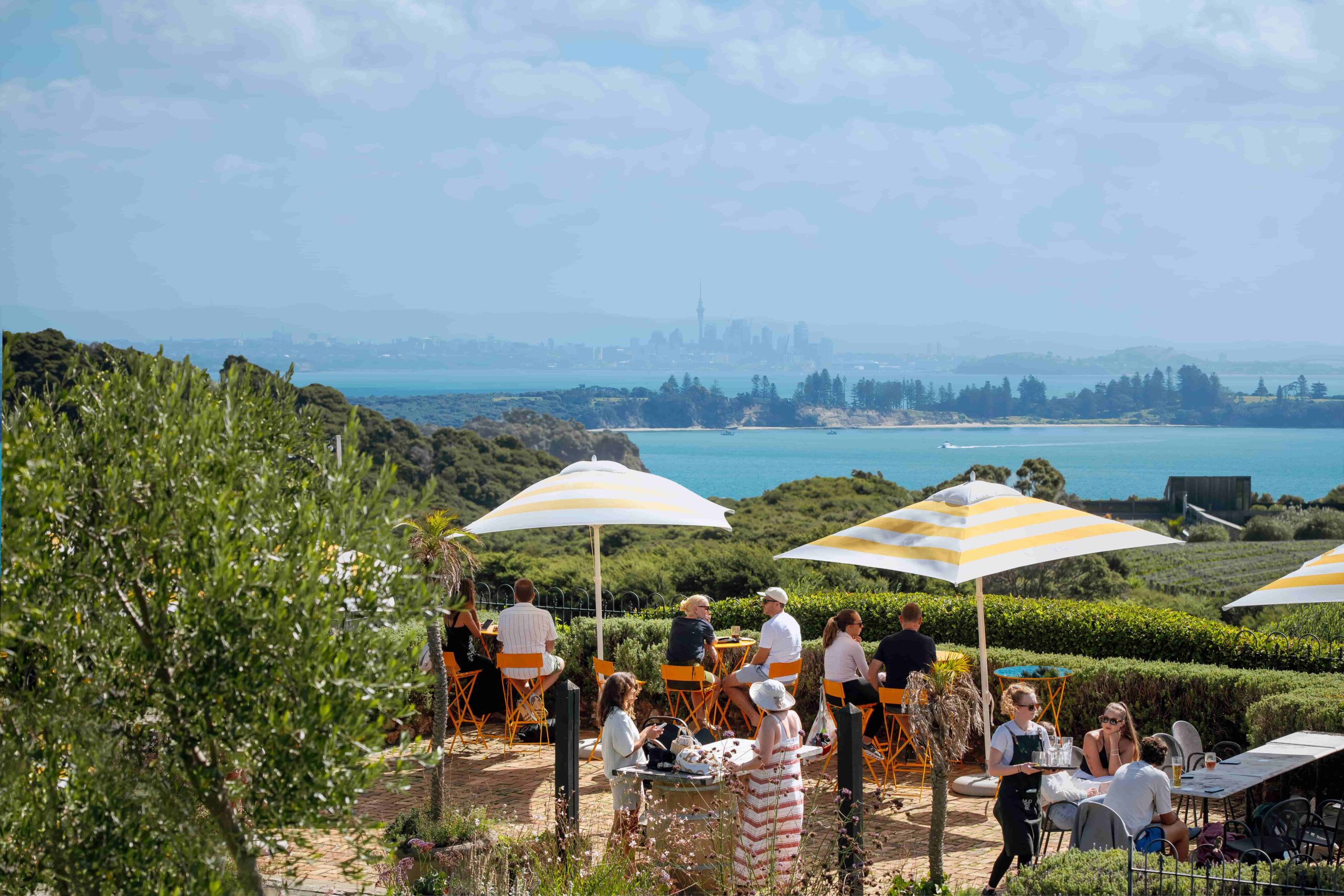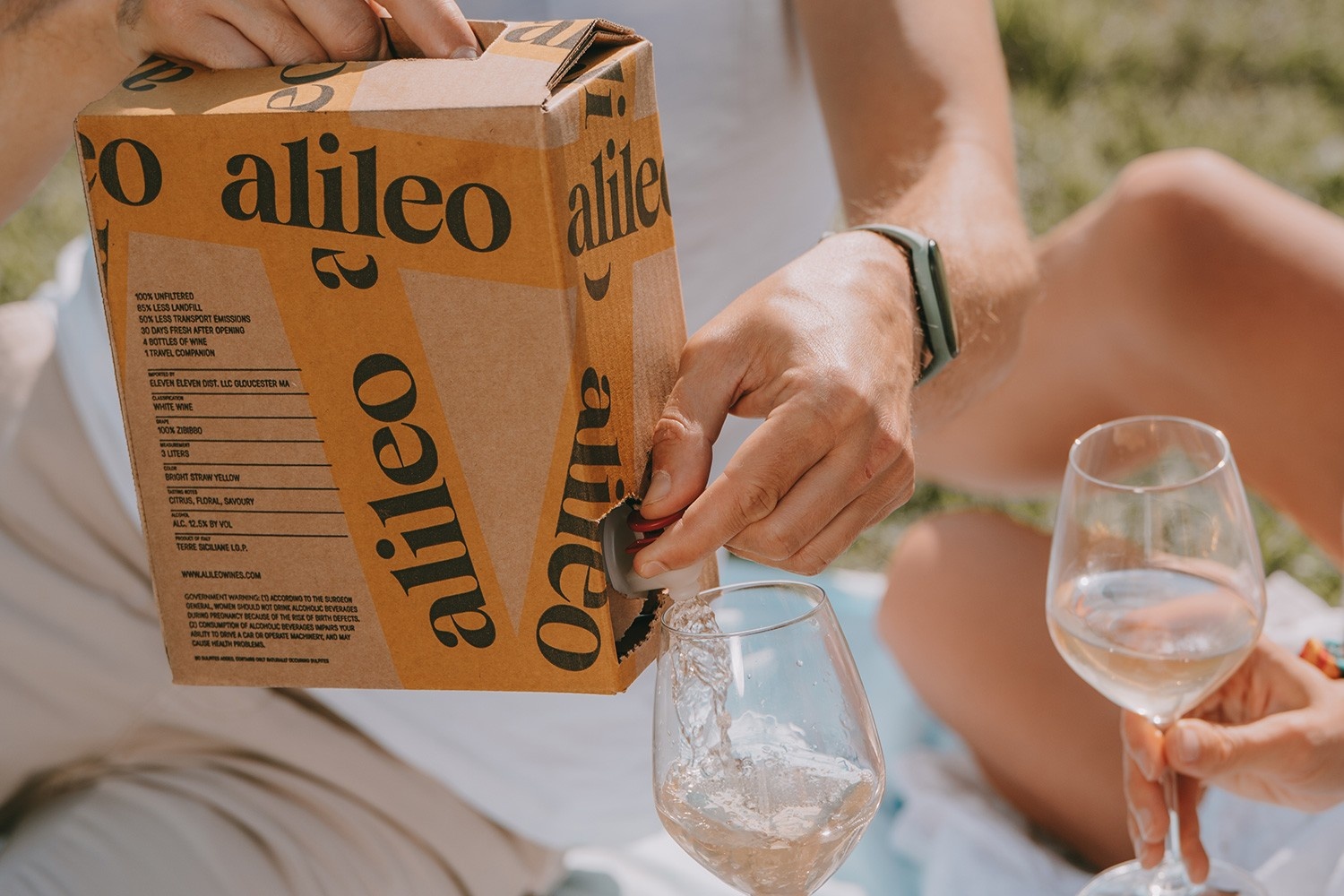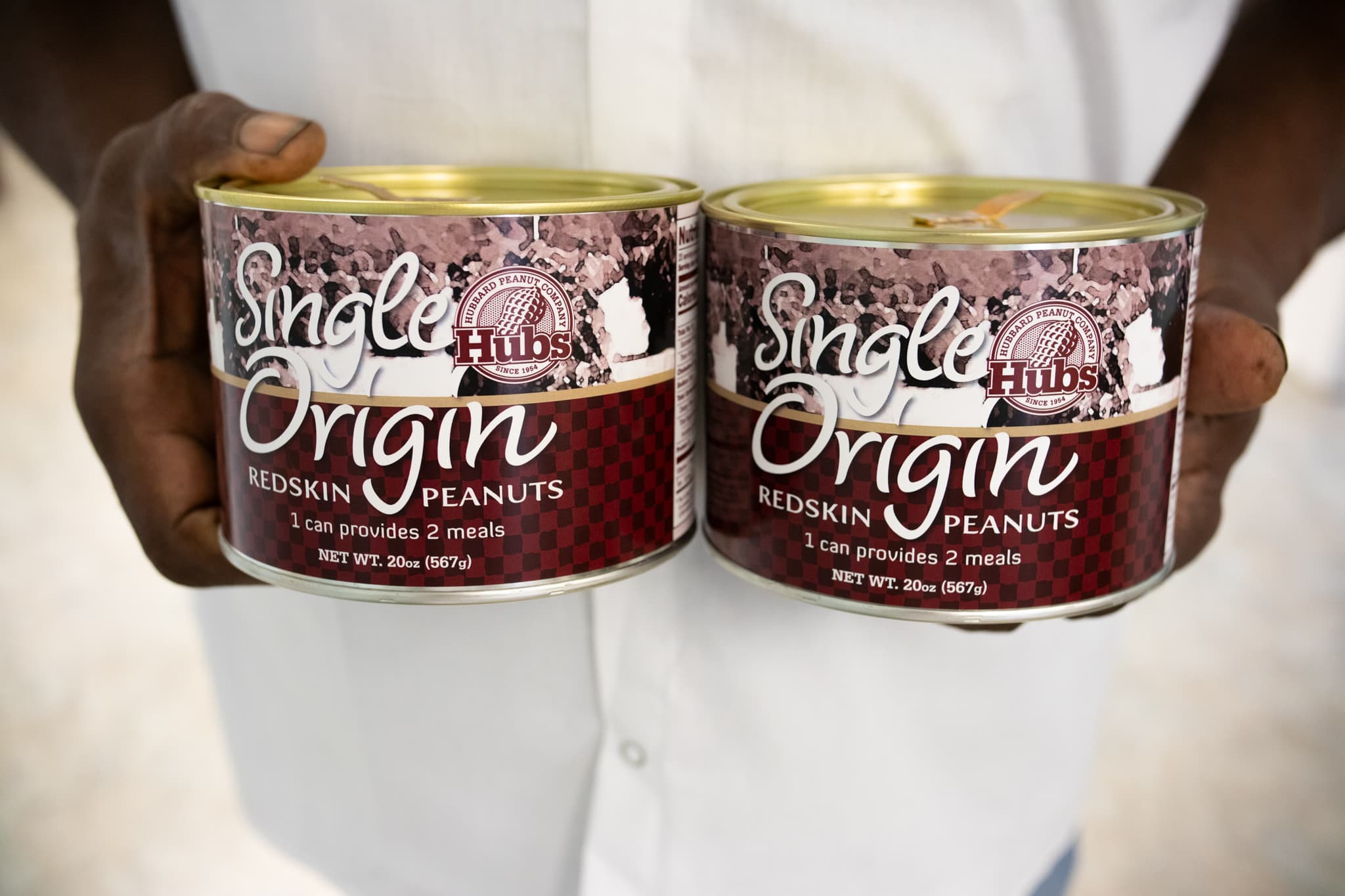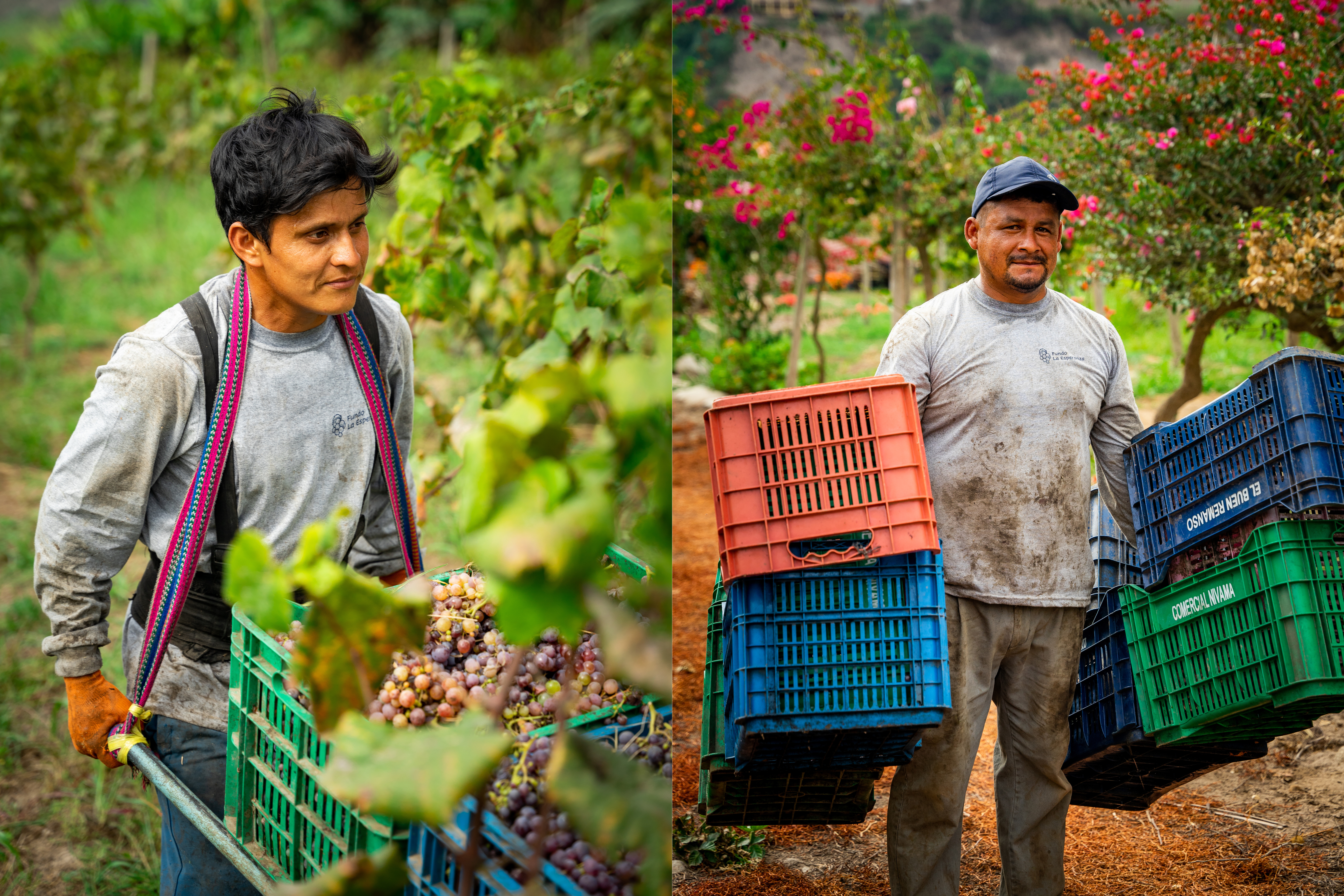NORTH STARS:
Waste Management
Water Management
Certifications
“Sustainability has been a cornerstone of our approach to viticulture in NZ for so long that it all seems very natural and normal these days.”
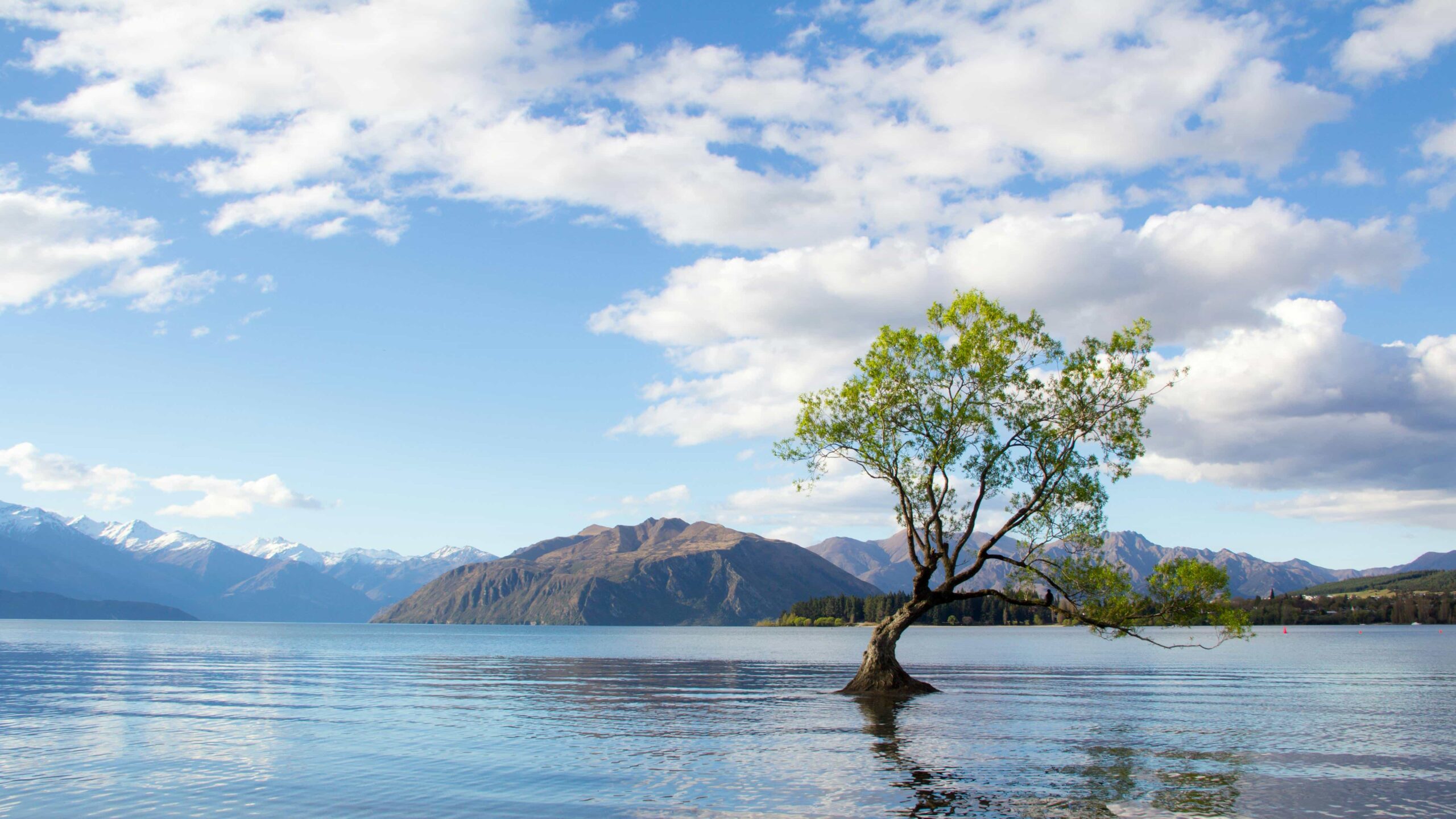
Lake Wanaka in Central Otago. Image courtesy of Pexels.
Partnership
At dawn, the surface of Lake Wakatipu glows like polished sapphire, mirroring the jagged peaks of the Remarkables. Mist drapes the water, shifting as the first golden light spills over the mountains. Beyond the lake’s edge, where the land lifts into rolling hills and sunbaked terraces, vineyards thrive in an extreme landscape of hot days, cool nights, and rocky soils. The setting, one of singular existential beauty, has long inspired photographers, poets, and writers. It also plays a vital role in shaping New Zealand’s wines.
For 30 years, Sustainable Winegrowing New Zealand (SWNZ) has guided the country’s wine industry toward environmental stewardship. What began in 1995 as a program for grape growers expanded in 2002 to include wineries. Today, SWNZ certifies 98% of New Zealand’s vineyard area and approximately 90% of wine production by volume, making sustainability a defining principle of New Zealand wine. While correlation doesn’t always mean causation, it’s hard to ignore the link between healthier vineyards, mindful practices, and consistently great wines.
How New Zealand Became a Leader in Sustainable Wine
Though shoots emerged nearly 200 years ago, marking the start of New Zealand’s wine industry, it remains a relatively young nation compared to the Old World. Nevertheless, sustainability has been a priority from the start.
“Sustainability has been a cornerstone of our approach to viticulture in NZ for decades and this commitment to the future continues to this day,” says Meagan Littlejohn, Program Manager for Sustainable Winegrowing New Zealand (SWNZ). “Right from the start, industry leaders recognized the extraordinary value of our natural resources and the need to protect them.”
New Zealand Winegrowers (NZW), the industry body representing New Zealand’s grape growers and winemakers, owns and operates SWNZ. Over time, the program has evolved to overlap with the United Nations Sustainable Development Goals, focusing on climate change, water use, waste, soil health, plant protection, and people.
“SWNZ members are required to demonstrate commitment and compliance in these areas through site management plans, annual reporting, and regular independent audits,” Littlejohn explains. “It’s about taking our members on a journey of continuous improvement.”
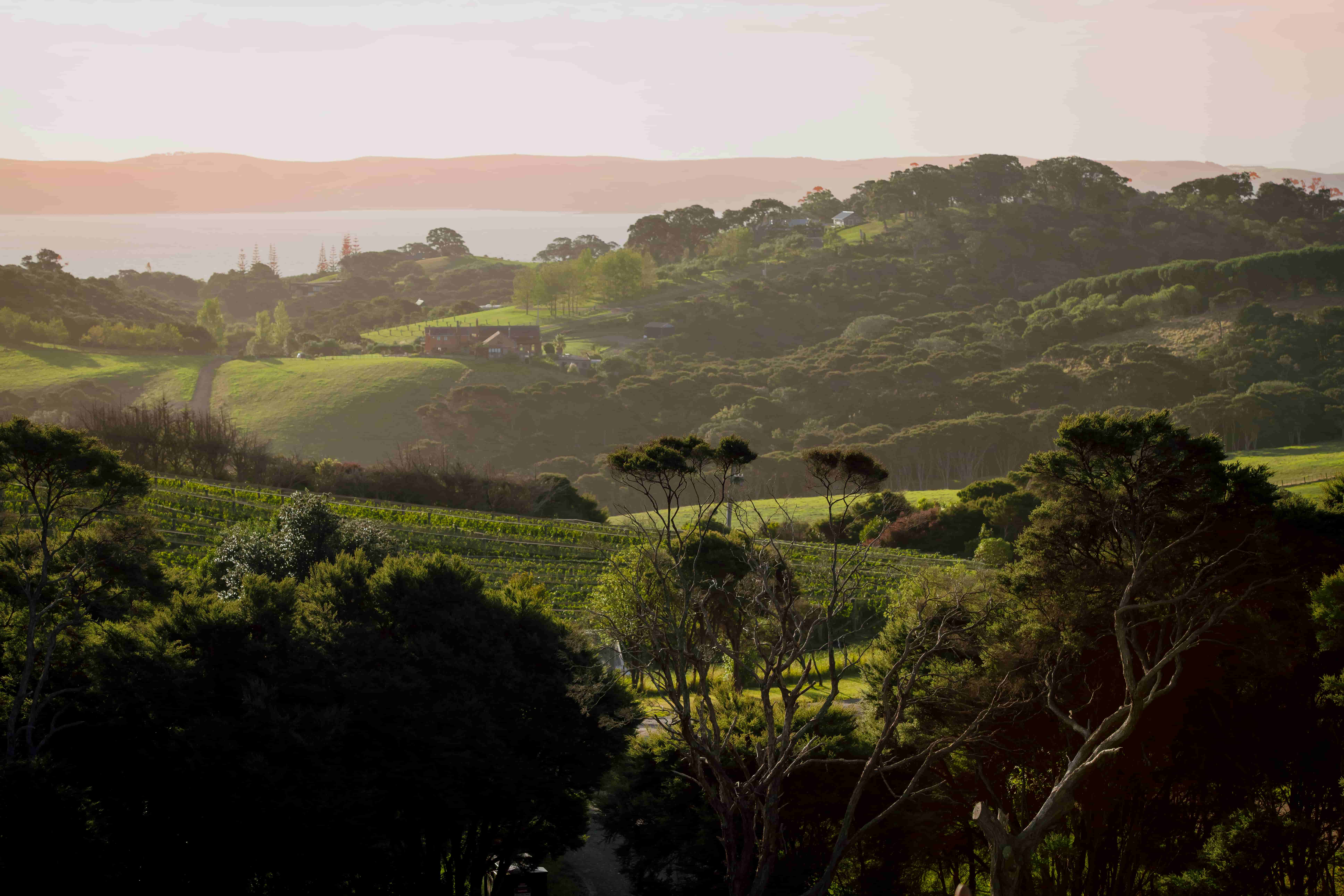
View from Mudbrick winery on Waiheke Island. Image courtesy of New Zealand Winegrowers.
Small Changes, Big Shifts, and The Road to Net Zero
Shifting how an entire country grows grapes doesn’t happen overnight. “Behavior change takes time, education and engagement,” says Dr. Edwin Massey, General Manager of Sustainability at New Zealand Winegrowers. The program enhancements are introduced gradually with guidance and resources to support producers.
Acknowledging that “climate change is already affecting what grapes we can grow, and where we can grow them,” in 2024 the industry released its Roadmap to Net Zero 2050, a strategy to reach net zero. The plan outlines ways growers and winemakers can reduce emissions across the production and supply chain, from vineyard practices to alternative packaging to freight.
One key effort supporting this goal focuses on helping grape growers meet new government regulations around freshwater protection. The project is developing an online farm planning tool tailored specifically for viticulture, making it easier for growers to identify environmental risks and take action around issues of runoff, erosion, and water quality.
“It’s ambitious, but it has to be,” says Littlejohn. “Our goal is to be world leaders in efficient water use and the protection of water quality.”
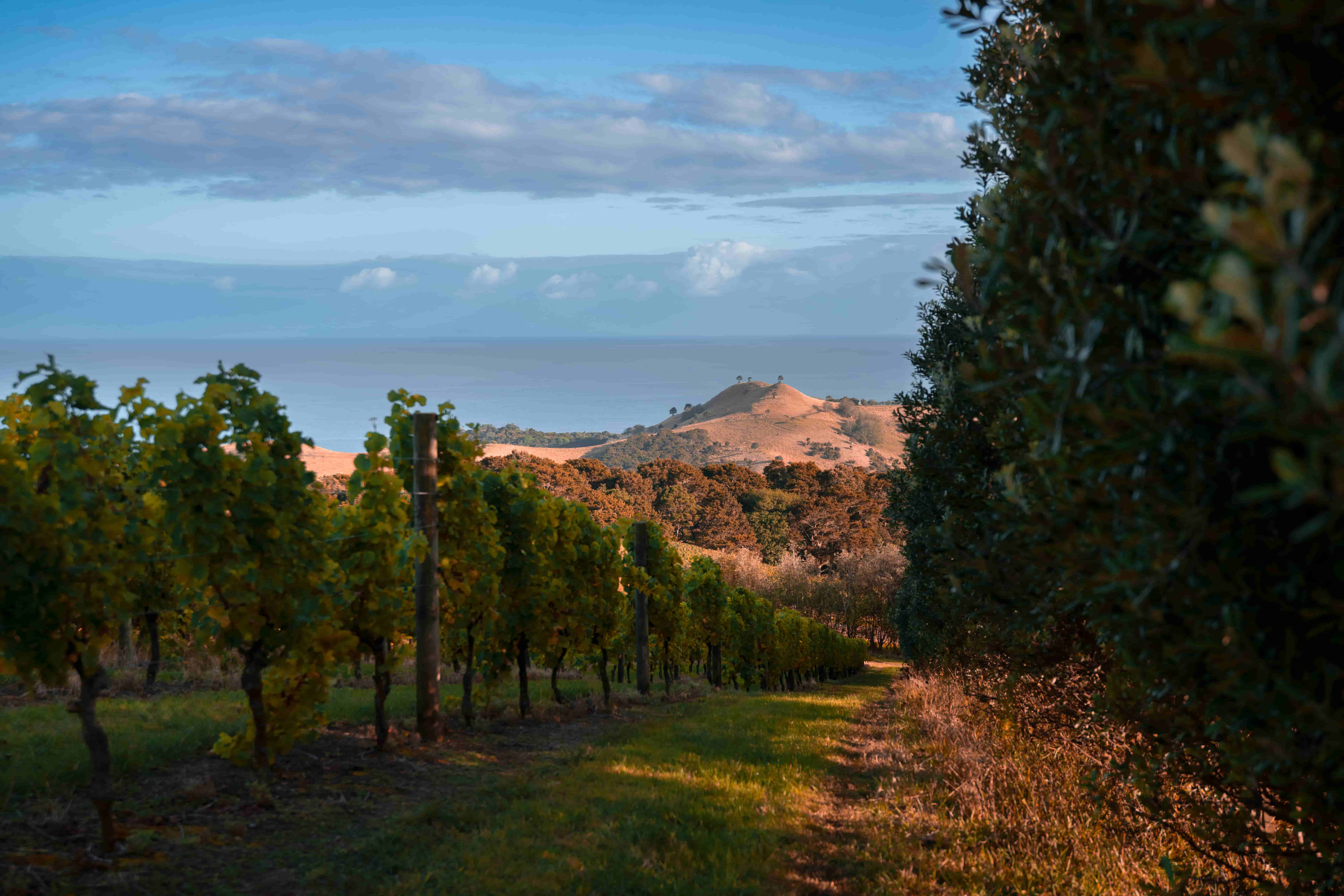
A view of Man O’ War's vineyards on Waiheke Island. Image courtesy of New Zealand Winegrowers.
Does Sustainable Wine Taste Better?
The idea that sustainable wine might taste better and offer more complexity, vitality, and longevity, isn’t just wishful thinking. Winemakers have long argued that great wine starts in the vineyard. Healthier vines and a happier workforce should logically lead to a better outcome.
Bruce Taylor, head winemaker at Tohu Wines in Marlborough, believes wholeheartedly that how you farm shows up in the glass. For him, sustainability is a baseline, not a bonus. “Wine quality is intrinsically linked to grape quality,” he says.
Tohu Wines, the first Māori-owned winery in the world, follows a holistic approach that prioritizes environmental health. Taylor says that over time, sustainable practices have become second nature.
However, as the climate shifts, managing water use and minimizing chemical inputs has become more complicated. These seasonal challenges, he notes, are not new to growers, but the pressure to manage a changing climate and with it, new pests and diseases, has increased.
Taylor believes that sustainable farming gives vines the strength to handle those tough years. “A more resilient, stronger grapevine will give you the quality year on year,” he says.
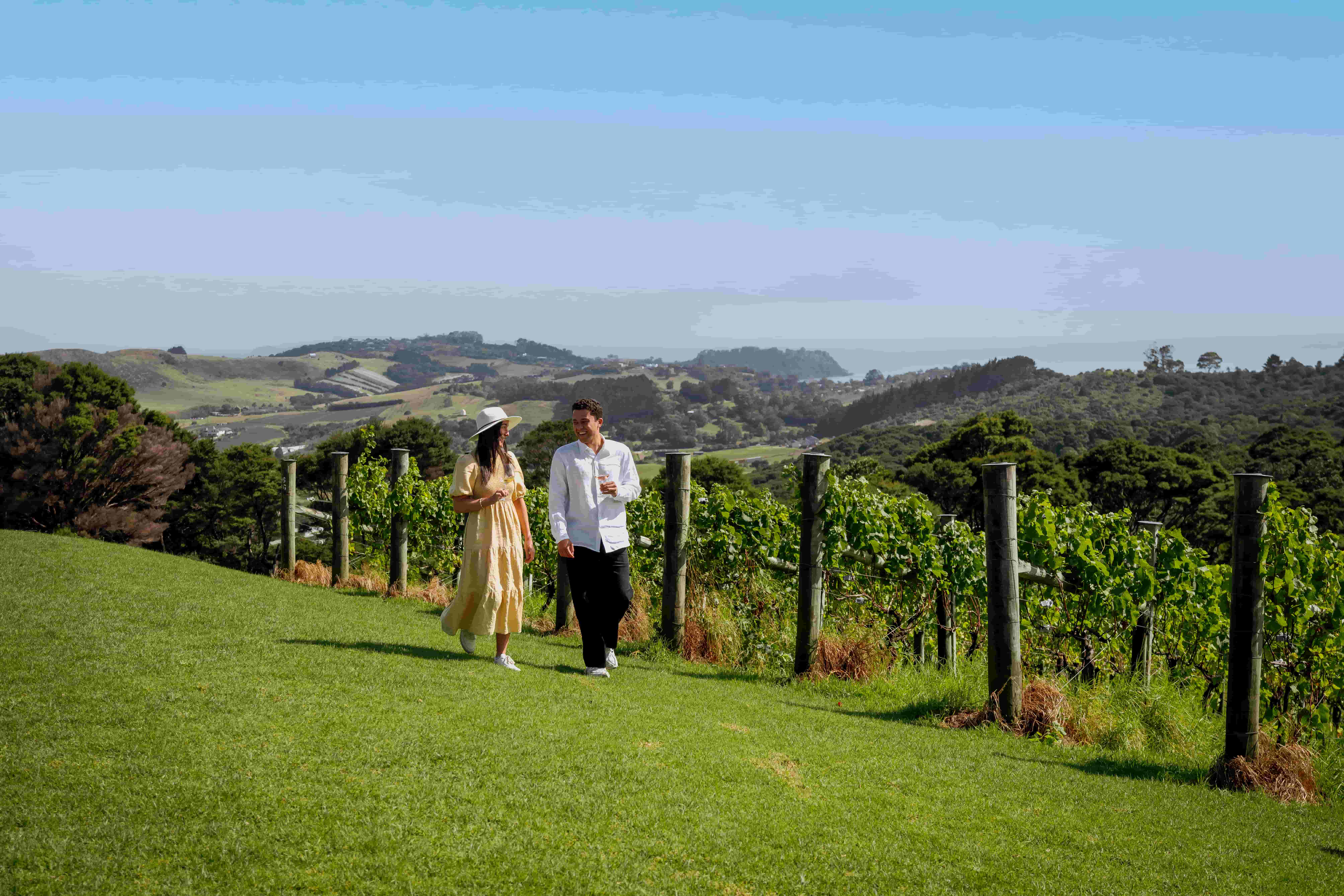
Guests strolling Batch Winery's vineyards on Waiheke Island. Image courtesy of New Zealand Winegrowers.
Does Sustainability Sell?
A decade ago, consumers seemed unwilling to pay more for certified sustainable wines, let alone ask for them at restaurants and wine shops. Today, the needle has shifted, especially among younger drinkers who want products that align with their values.
“There’s strong brand recognition globally between New Zealand wine and sustainable production,” says Dr. Edwin Massey. “That’s been earned over decades, and it matters more every year.”
For winemakers like Taylor, that recognition reflects real work. “Our environmental standards are part of our identity,” he says. “We’re not perfect, but we take it seriously.”
The payoff for doing things right? New Zealand is now making the best wines in its history.
North Stars: Certifications, Waste Management, Water Management


